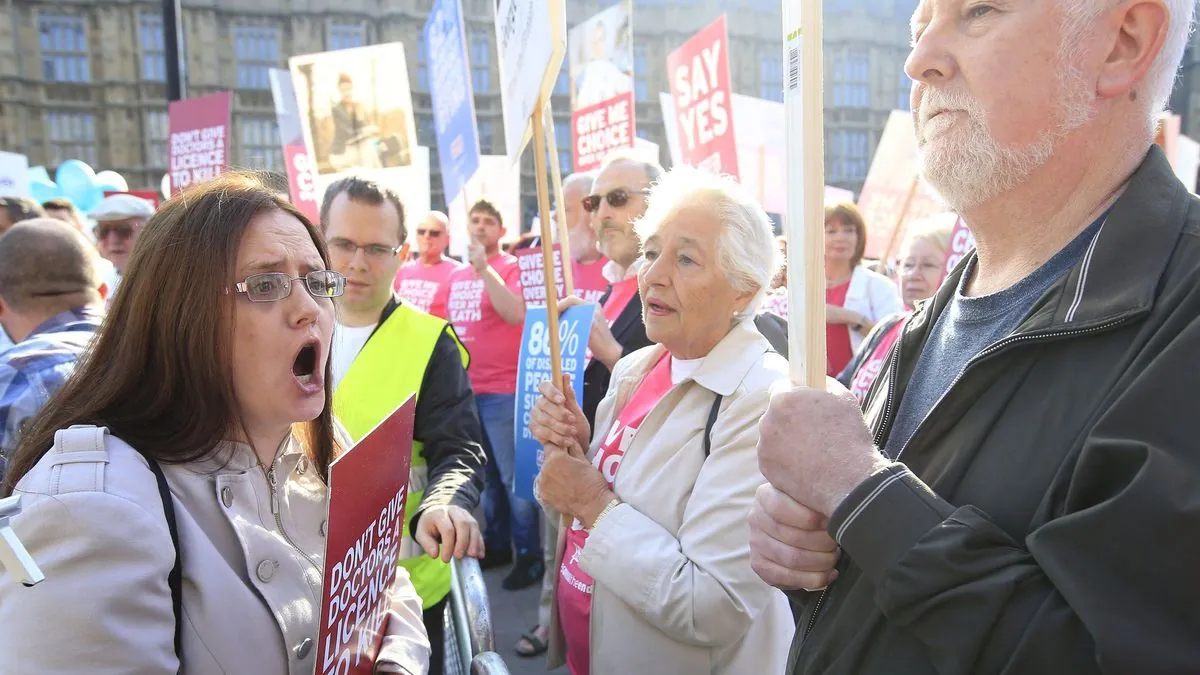Citizens' Jury Backs Assisted Dying: Democratic Process Questioned
A citizens' jury supports legalizing assisted dying, sparking debate on its influence and legitimacy. The article examines the role of such juries in shaping legislative decisions and emphasizes the importance of parliamentary debate.

A recent citizens' jury has expressed strong support for legalizing assisted dying, with 20 out of 28 participants agreeing that the law should be changed. This development, organized by the Nuffield Council on Bioethics, has raised questions about the role and influence of such groups in shaping legislative decisions.
Citizens' juries, which originated in the United States in the 1970s, typically consist of 12-24 randomly selected individuals. While these groups aim to provide a platform for public deliberation on complex issues, their legitimacy and impact on the democratic process have come under scrutiny.
Critics argue that citizens' juries lack legal status and are not sufficiently representative or specialized to inform policy decisions. The jury in question did not include recognized experts in medicine or medical ethics, yet legislators are being encouraged to consider their conclusions.

The concept of citizens' juries is not inherently problematic, much like informal discussions among friends. However, concerns arise when these initiatives are presented as more influential than their actual status warrants. The name "citizens' jury" itself may lead to associations with more formal decision-making bodies, potentially overestimating their democratic legitimacy.
Some view citizens' juries as tools used by organizations and public relations specialists to promote specific agendas. This approach may be seen as an attempt to bypass traditional political processes when parliamentary decisions do not align with desired outcomes.
"As an MP, I resisted the increasingly voluble demands for a relaxation of the law on assisted suicide. My reasons were similar to most other opponents of the move: if ever there were justification for applying the too frequently used phrase, 'slippery slope', this was it."
The author, a former Member of Parliament, shares their personal journey from opposing assisted dying to reconsidering their stance. This shift in perspective highlights the complexity of the issue and the potential for individual views to evolve over time.
It's worth noting that the UK Parliament last voted on assisted dying in 2015, rejecting a bill by 330 to 118. Since then, the debate has continued, with the British Medical Association dropping its opposition to assisted dying in 2021. However, the World Medical Association maintains its stance against euthanasia and physician-assisted suicide.
The article emphasizes that the debate on assisted dying should primarily take place in the House of Commons, where democratically elected representatives can make informed decisions. MPs are encouraged to consider the voices of their constituents and their own consciences when voting on such critical issues.
As of 2024, assisted dying remains illegal in the UK, with assisting a suicide punishable by up to 14 years in prison. This contrasts with several other countries, including Switzerland, the Netherlands, and Canada, where various forms of assisted dying are legal.
While citizens' juries and other forms of public engagement can contribute to the broader discussion, the article argues that the final decision-making authority should rest with elected officials who are accountable to their constituents and the democratic process.


































